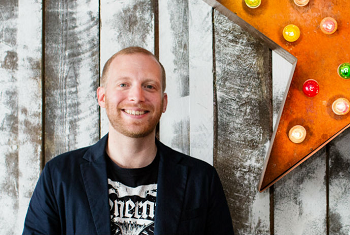
As fans of Blade Runner and The Terminator can testify, AI and particularly AI disaster scenarios are a subject most people can’t get enough of. Therefore, when AI technology and investment began to grow, it quickly caught the public’s imagination. The problem is that the technology hasn’t kept pace. The resulting gap between the perception and the reality has led us to enter what the Gartner Hype Cycle calls ‘the trough of disillusionment’ with AI.
This is especially apparent in the marketing industry, where, for all the talk of AI at industry events and in the media, only 27% of marketers in the UK are actually using it in their jobs. Earlier this year, Phrasee carried out research with Vitreous World to ask 400 marketers what the barriers to AI adoption. Here are the top three reasons they reported and some of the misconceptions that often lie behind them.
1) AI isn’t just a buzzword
Part of the reason for the ‘trough of disillusionment’ is that it can feel like every tech company going claims to use AI in some shape or form. But in fact, very few are using it in a way that is real or meaningful.
This confusion is confounded by a broader dispute about what AI is or means. If you were to ask the person next to you if they know what AI is, they’d probably say yes. But ask them to define it, and it might be more of a struggle. To a philosopher, AI is about whether a machine has a mind, whereas for a computer scientist, it is a tool that can do tasks previously completed by humans.
It’s no surprise then that Phrasee’s research revealed that 65% of marketers see AI as ‘a buzzword’ and a further 41% lack understanding about what it is. It’s therefore vital that tech partners are fully transparent and accurate about the capabilities and limitations of their tech to marketers so that this confusion – and disappointment – can be avoided.
2) AI isn’t a magic wand
Once marketers are clear on the AI technology they’re using, the next challenge is to be realistic about the help it can actually provide. Our research found that over two thirds (68%) don’t know how to use it to deliver results. AI is at its most effective when brought in to solve a specific problem and should never be seen as a magic pill to turn a business’s fortunes around.
At its most effective, AI should have a minimal impact on existing infrastructure and work processes but will make a big difference to the bottom line. Virgin Holidays for instance, adopted Phrasee’s technology to generate the subject lines for their email marketing campaigns, which achieving several million pounds in additional revenue for them.
3) AI isn’t going to take your job
For many people, talk of AI brings fears of job losses, societal changes and robot overlords – in fact, 27% of respondents in our survey are concerned that it’ll put them out of a job.
Where AI often suffers is the lack of distinction that is made between ‘narrow AI’ and ‘general AI’. General AI is the type that science fiction fans are interested in, where AI becomes smarter than humans. Narrow AI, on the other hand, is a technical solution to a particular problem.
We’re still a long way away from general AI, and narrow AI is being applied to automate repetitive tasks which helps to free up employees’ time so they can focus on the more meaningful and fulfilling aspects of their work.
For example, I recently spoke with Molly Prosser, eBay’s Associate Creative Director, to discuss her experience of working with AI. She said she sees Phrasee as a tool that frees up her team’s time for more creative thinking. When explaining the benefits of AI to her team, she asked whether they want to write 150 email subject lines or if they want to spend the same time thinking about their next innovative campaign. I’ve certainly never met a marketer who would choose the former.
Adopting AI can be new and scary for marketers, but if done correctly the rewards can be enormous. The key is to find a transparent and trusted partner who can not only deliver tangible results, but also guide you over the hurdles that come with adopting any new tech.
By Parry Malm
CEO and co-founder
Phrasee
